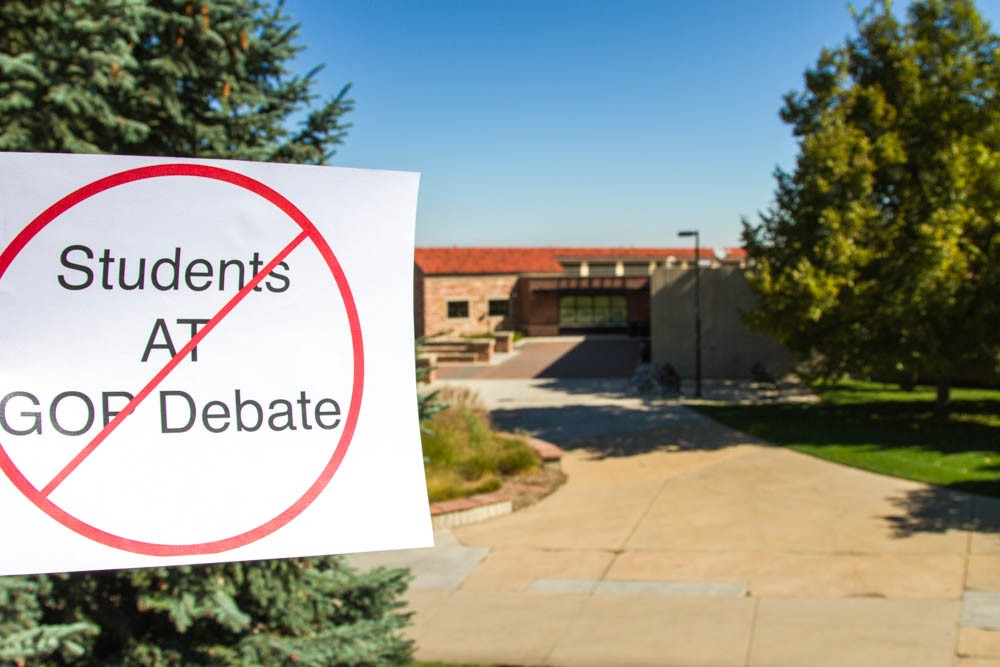With less than a month until the Republican debate comes to the University of Colorado’s campus, CU Student Government and debate organizers still can’t agree on the number of students and faculty members that will be allowed in.
When it was announced in mid-July that CU would be hosting one of the Republican presidential debates, Chancellor Phillip DiStefano likened it to past “high-profile” events and speakers that the university has hosted.
“This debate will be a memorable experience for our students and the entire community,” DiStefano said back in July.
When it was announced that of the 11,000 seats in Coors Events Center, only 1,000 would be used for the debate — and that only 50 of those would be available to students and faculty — there was an immediate public outcry.
A group of students called Student Voices Count created a Facebook page last Wednesday, calling on other students to gather in protest the same day of the debate. The group also started a petition, calling on CNBC and the Republican National Convention to make 900 additional tickets available to CU students and faculty. As it currently stands, the petition is 55 signatures short of reaching its goal of 500.
Last week, CUSG passed a special resolution which expressed its opinion that at least half of the available 1,000 seats should be opened up to CU students and faculty. The resolution stipulates that if the RNC and CNBC are not willing to cooperate with these demands, students will ask that CU no longer sponsor the debate.
In response to the outcry, the RNC and CNBC increased the number of seats for students and faculty from 50 to 100. This did nothing to change the position of CUSG, and only led to further outcry. Democratic congressman Jared Polis wrote an open letter to Chancellor DiStefano, calling the new allotment of 100 seats “insulting.”
The current seating allotment will have students and faculty making up a tenth of the audience, in spite of the fact that the university community makes up almost a third of the city of Boulder’s population.
Even if the demands of Student Voices Count or CUSG are met, the students and faculty allowed in will account for less than four percent of the university’s population. But in this case, the students and faculty would make up roughly half of the debate’s audience, a step toward the representation demanded by Student Voices Count, and could quell criticism regarding DiStefano’s promise to the community.
The debate will take place on Oct. 28, 2015 and will be broadcast live on CNBC. Information on which candidates will participate in the debate has not yet been released.
Contact CU Independent News Staff Writer Ryan Ellis at ryan.ellis@colorado.edu.

